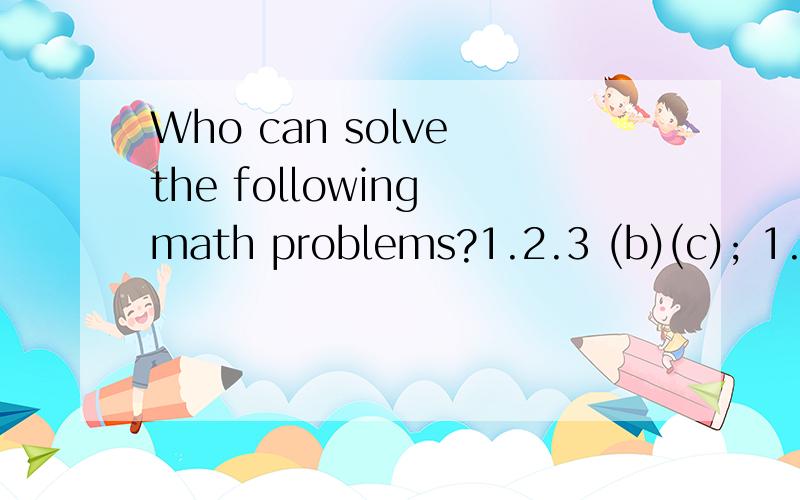Who can solve the following math problems?1.2.3 (b)(c); 1.3.4 in the PDF file linked below.These 3 problems are about basic linear algebra.
来源:学生作业帮助网 编辑:作业帮 时间:2024/11/15 14:22:49

Who can solve the following math problems?1.2.3 (b)(c); 1.3.4 in the PDF file linked below.These 3 problems are about basic linear algebra.
Who can solve the following math problems?
1.2.3 (b)(c); 1.3.4 in the PDF file linked below.
These 3 problems are about basic linear algebra.
Who can solve the following math problems?1.2.3 (b)(c); 1.3.4 in the PDF file linked below.These 3 problems are about basic linear algebra.
1.2.3
(b)
let D(n) be the final answer
we have
D(n)=aD(n-1)-D(n-2)
D(1)=a
D(2)=a^2-1
(c)
let D(n) be the final answer
we have
D(n)=aD(n-1)+(b^2)[(a+b)^(n-2)]
D(1)=a
1.3.4
if a+b+c=0
then,(x,y)=(1,1) satisfied all three equations,which means these three line pass the point(1,1).
if these lines pass one point
then,
ax+by+c=0
bx+cy+a=0
since lines are distinguished each other,
ac-b^2 != 0
x=(-c^2+ab)/(ac-b^2)
y=(-a^2+bc)/(ac-b^2)
from the last equation
c(-c^2+ab)/(ac-b^2)+a(-a^2+bc)/(ac-b^2)+b=0
we get
a^3+b^3+c^3-3abc=0
that is
(a+b+c)(a^2+b^2+c^2-ab-bc-ac)=0
(a+b+c)0.5((a-b)^2+(b-c)^2+(c-a)^2)=0
since a=b=c can not be reached,otherwise three lines are actually one line,0.5((a-b)^2+(b-c)^2+(c-a)^2)>0
so a+b+c=0